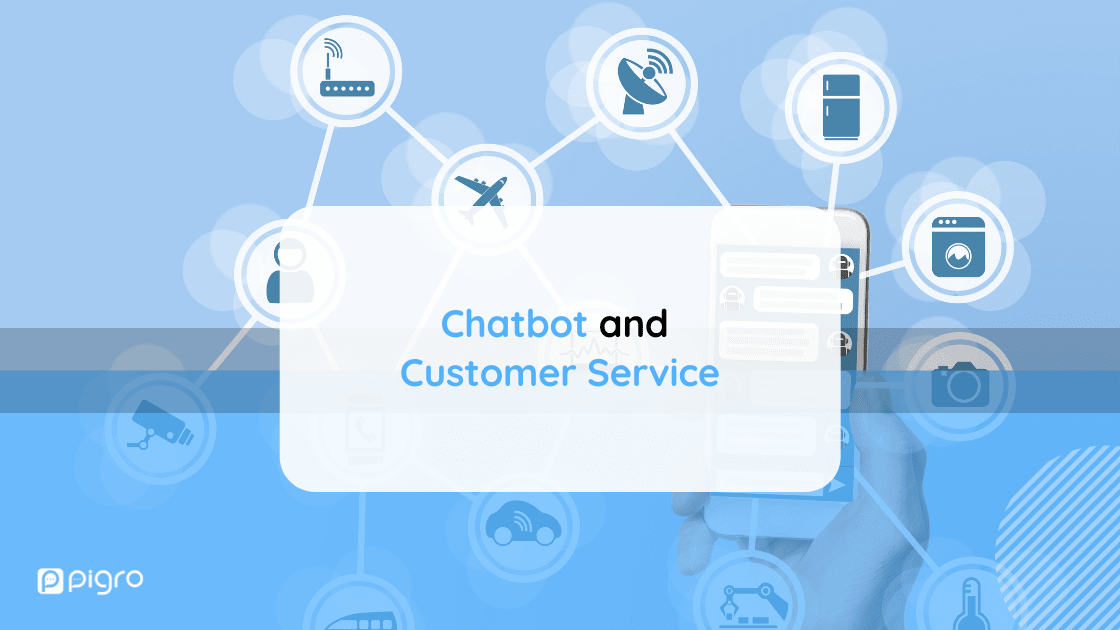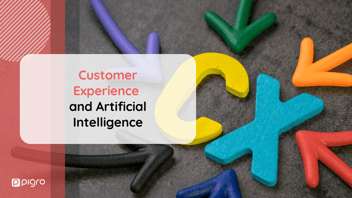Artificial intelligence chatbots are a useful tool to support the different Customer Service activities within companies. During after-sales service, users expect quick answers that can solve (or even anticipate) their problems.
Failure to meet customer expectations can result in several negative scenarios:
-
failure to purchase the product (or service);
-
search for alternative solutions, which may lead to the purchase of a competitive product/service;
-
breakdown of the relationship with the client.
Consumers are no longer subject to companies but expect to be heard and put first. Efficient customer service is, therefore, essential.
The current scenario in the use of artificial intelligence chatbot
The use of artificial intelligence chatbots to optimize customer service is no longer a future scenario but a reality.
In this regard, among the most exciting data of the research conducted by Invesp emerges:
– 67% of consumers worldwide have used a chatbot (used as a Customer Service) during the last year;
– 95% of consumers are convinced that potential purchasers will benefit from the use of chatbots;
– 40% of consumers have as their only concern getting a solution to their problems, not interested in human origin, or artificial help.
Artificial intelligence Chatbot: what they are and which type of them already exist in the market
Chatbots can simulate a real and human conversation with their interlocutor, through textual or vocal messages.
There are two types of chatbots:
-
rule-based chatbot, or bot not based on Artificial Intelligence and reacting to events in a certain way, as provided by the algorithm;
-
A.Chatbots, or bots that are built through machine learning to understand the context and intent of the question that is addressed to them.
The majority of Artificial intelligence chatbots are focused on Natural Language Processing (NLP), which is a computer processing of natural language (that is the language used daily).
Chatbots of this type are therefore able to recognize what is written by the user and to answer any questions.
The Artificial intelligence chatbot, focused on the NLP, is not infallible: in case the question of the user does not concern the topics on which the chatbot was trained, the user may not receive an answer.
All this could not only affect the relationship with the company (regardless of its strength) but also reduce the customer’s willingness to come into contact with the company again.

Artificial intelligence chatbot and Customer Care: why use the A.I. in customer service
Chatbots do not replace workers engaged in customer service activities but complement the tools already used to optimize the whole after-sales process.
Most of the questions, which users ask at the time of the assistance, are repetitive, but they still require a waste of energy and time on the part of the operator who interacts with the user.
Chatbots can be used to handle these repetitive questions.
The adoption of this technology allows, therefore, to assign other assignments to the worker, using it where it is essential in different phases and moments of the process of customer loyalty.
All that allows the company to reduce costs, but there are other benefits that a company can receive from integrating chatbots into its Customer Service process:
– provide 24/7 active customer service, providing the user with continuous and uninterrupted customer service, providing quick answers at the exact moment when they are requested by the customer;
– continuous learning of chatbot, which results in a progressive improvement of its performance in interacting with the client;
customization of the consumer experience (customer experience), being able to use the chatbots in one-to-one conversations to-one, which gives back to the customer an after-sales service experience entirely built on his needs and his requests.
The characteristics of excellent customer service
To develop efficient Customer Service, you need to implement some factors:
1) Build and train a team that is suitable for managing customer service and can relate to customers.
The members of the working group must share some interpersonal traits:
-
ability to understand what kind of customers you have to deal with and how you can best respond to their needs;
-
ability to adapt to situations and solve problems;
-
ability to work in a team;
-
honesty, or to admit errors with the customers, having as a result that to be appreciated for this expression of integrity;
2) Put the customer at the centre, building a two-way relationship with the customer.
3) Offer customers a quick response to their problems, generating in them a positive feeling towards the brand or the company.
Customer Service: what it is
The Customer Service (CS) is defined as the set of relationships that exist between the company and the customer not only at the time of the purchase of the product or service but also after its use.
According to academic marketing literature, Customer Service is something intangible, linked to a set of additional activities that a company provides to the buyer of a product/service. With the implementation of the artificial intelligence chatbot, it is possible to simplify the entire process of customer care.
Customer Service and Customer Care: what they mean
The concepts of Customer Service and Customer Care are often confused with each other, although they have different meanings.
Customer Service has as the main objective to answer the questions of the customers.
These questions may cover different phases of the customer’s approach to the product/service:
– the consumer may have questions before completing the purchase (and answering these questions means facilitating the final purchase of the goods by the customer);
The customer can have questions once the purchase is completed. Answering these questions means allowing the user to use the product in the best possible way, ensuring its maximum performance.
In the long term, a consumer, often satisfied with the company’s product, translates into a loyal and loyal customer.
Customer Care goes beyond consumer relations with the company before or after the purchase of the goods/service.
Customer Care is based on the customer’s attention and is, therefore reflected in a continuous process of listening to the needs and problems of the consumer to build a deeper relationship.
What are the benefits of Customer Service?
A good customer service process can increase Customer satisfaction, that is the fulfilment of a customer need with a product/service purchased.
As evidenced by the academic literature, the satisfaction of a customer (and therefore Customer satisfaction) implies the ability of the company, or the individual brand, to meet the expectations of customers.
Customer Service also guarantees the customer a series of additional activities (tangible or intangible), such as the guarantee after the purchase or the free delivery of the purchased product.
Overall, these activities (which together make up Customer Service) increase the value received and perceived by the consumer.
This will bring the customer:
– to repeat the purchase (choosing that product or that specific brand after a certain period again);
– to be willing to spend more to buy that brand or product, by the additional benefits that are guaranteed.
Learn more: Artificial Intelligence Ethics: Rules and Principles for Making intelligent systems more responsible
Want to know more about Pigro? Contact us!



